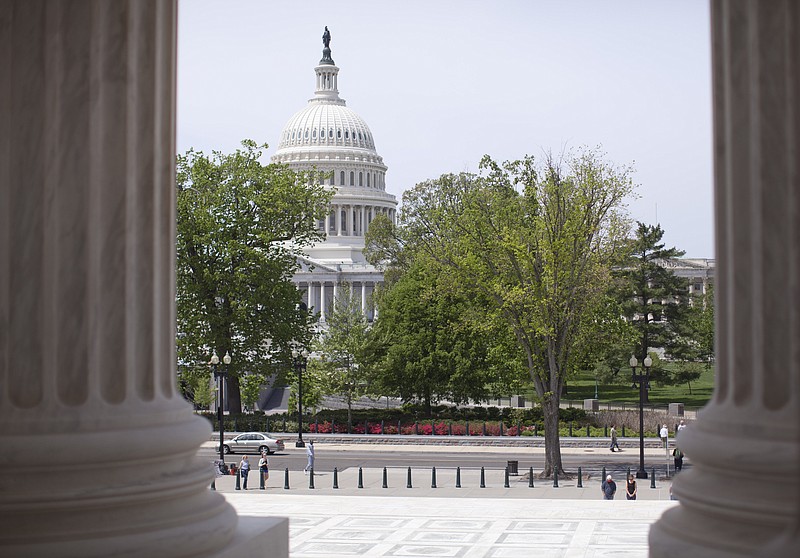A federal appeals court in New York on Thursday ruled that the once-secret National Security Agency program that collects our phone records in bulk is illegal.
That's good news.
But then the court threw this hot potato right back into the lap of Congress -- just as an expected congressional fight over spying on Americans is intensifying.
That's not such good news.
In a 97-page ruling, a three-judge panel decided that a provision of the USA Patriot Act known as Section 215 cannot be legitimately interpreted to allow the bulk collection of domestic calling records.
Section 215 allows the government to collect information "relevant" to terrorism investigations, but what that information might be is up to a secret court known as the Foreign Intelligence Surveillance Court, which has no ordinary probable-cause type oversight or even a citizen advocate. What the intelligence court has allowed to date is the scraping and storing of all of our phone records -- just in case that information about us is ever needed, now or later.
Judge Gerard Lynch of the Second Circuit Court of Appeals wrote that "it is a far stretch to say that Congress was aware" of what the intelligence court was doing.
Yet the court did not order the collections to be stopped, opting instead to force Congress to make a decision about the law that will expire in June unless lawmakers pass a bill to extend it.
Now that's just what GOP leadership is suggesting. Senate Majority Leader Mitch McConnell on Thursday -- after the court's ruling -- called for the law to be renewed without change.
The New York Times has reported that the House appears ready to pass a bill next week that would end the government's bulk collection of phone records and replace it with a new program that would preserve the ability to analyze links among callers to hunt for terrorists. That would keep the bulk records in the hands of phone companies. But McConnell is siding with national-security hawks who have said reforming the law would be a gift to terrorists.
Alexander Abdo, who argued the case for the American Civil Liberties Union, praised the appeals court ruling.
"This decision is a victory for the rule of law that should spur Congress into action," he told national reporters."Today's decision is an opportunity to redouble the defense of the constitutional principles that have made our nation what it is today."
Well, stay tuned.
If Congress -- primarily top Republicans like McConnell -- renews this law as is, then they will no longer have any license to complain about "big government."
If our leaders renew this law as is, they will become the poster children of big government -- in "big brother" government style.
